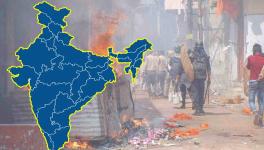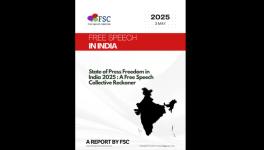Censorship at MIFF: Films Division Decides Against Screening ‘In the Shade of Fallen Chinar'
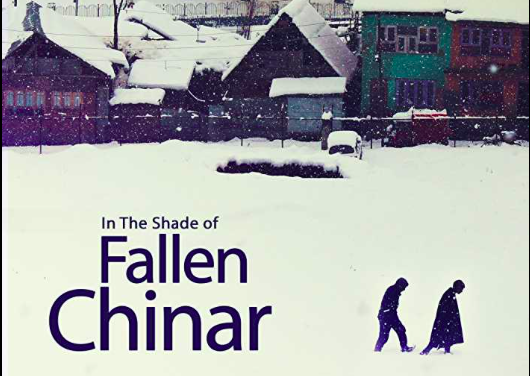
So here’s the thing: one government body has censored another government body.
On January 29, the Mumbai International Film Festival (MIFF) did not screen In the Shade of the Fallen Chinar, a 16 minute documentary on students at the University of Kashmir, by Shawn Sebastian and Fazil N.C.. The documentary was not screened despite the fact that it was selected by a two-tier selection committee, which, too, had been appointed by the Ministry of Information and Broadcasting.
Shoma Chatterji, who was also a part of the selection committee, both at the regional and national tiers, said,
We, the selectors, made a collective representation to the DG about this and also participated in a gathered meeting at the FD complex to draw attention to this. The filmmakers Fazil MC and Shawn Sebastian seem to have accepted the decision and explanation of the Directorate.
We reached out to the filmmakers through their official website but have not received any replies.
Films Division had asked the jury (which is different from the selection panel) to watch the film separately and include it as one of the films in the competition section.
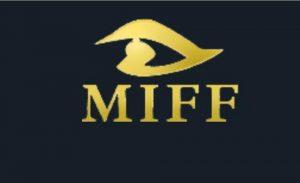
According to the article published in The Wire, no clear reason was given in the beginning, but later, they invoked a section 9 of the cinematographic act, which can be read here. One of the provisions says,
In exceptional cases, the Ministry of I&B will have the powers to reject, for reasons to be recorded in writing, the request for exemption to any film(s) if, in its opinion, it would impinge on the security or integrity of the country, or affect law and order, or affect relations with other countries.
What were the reasons behind such “exceptional circumstances”, however, have not been made clear. It is also difficult to understand how screening the film could lead to a law and order situation.

In the Shade of the Fallen Chinar is a documentary around students at the University of Kashmir who assemble at a fallen chinar inside the campus. “It is a beautiful film of 17 minutes. It does not deal with the conflict situation in Jammu & Kashmir but converts it into an aesthetic political statement against any kind of conflict. The narrative centers on the fallen trunk of a chinar tree which the students, who are artists, have painted white, and this forms a platform for artistic performance and expression. It also represents an alternative mode of creative protest where the art and performance evolve into a language unto itself through the audio visual medium of cinema,” said Chatterji.
This is not the first time that documentaries have been quietly censored by the Films Division. The issue first came into prominence in 2003, when several film makers protested against the introduction of a rule which made it mandatory for films to receive a censor certificate for it to be screened in a festival. Kasturi Basu and Dwaipayan Banerjee, members of the People’s Film Collective, who organise the Kolkata People’s Film Festival, a non-corporate, non-government, people funded film festival in Kolkata, said,
MIFF has had its history of censorships. In 2004, the whole 'Vikalp' experiment of parallel film festivals started because of govt's refusal to screen political films post the Gujarat pogrom.
In 2003, more than 275 filmmakers organised themselves and launched the Campaign Against Censorship, after which the precondition for censor certificate was withdrawn. The next year, however, several political documentaries were rejected. The filmmakers held a parallel festival, called Vikalp: Films for Freedom, in 2004.
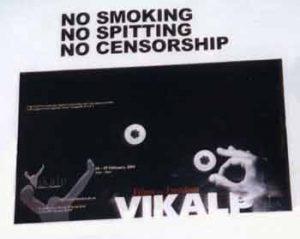
“In MAMI too, last year (2017), the classic film Jaago Hua Savera was stopped from being screened as it was a Pakistani co-production! It's not as if films without a censor certificate are not screened at MIFF. They are, routinely. Many examples are there. So, this is not a technical issue. It is a political decision to stop the voice of Kashmiri people from reaching wider audiences. The film has been stopped because it talks of the resistance of the common Kashmiri people against India's military occupation. This is an unpalatable truth for the Indian government, and hence it would go at all lengths to stop a film on Kashmir. ” said Basu and Banerjee.
Indeed, in the past one year, however, issues pertaining to film censorship have made several headlines. This is also reminiscent of the controversy around the International Film Festival of India (IFFI) held in November 2017, where three jury members of the festival’s Panorama section, including Sujoy Ghosh, the chariman, resigned after two films, Sexy Durga and Nude were dropped from the list of movies that were to be screened. As Lourdes M Supriya has noted in her roundup on film censorship in 2017, “The filmmaker, Sanal Sasidharan, moved the Kerala High Court, which overruled the I&B Ministry’s decision and directed the IFFI authorities to screen it. However, the CBFC intervened and announced that movie will not be screened, raising objections to the way the name of the movie was written (Sxxx Durga).” Nude, too, was not screened at the festival.
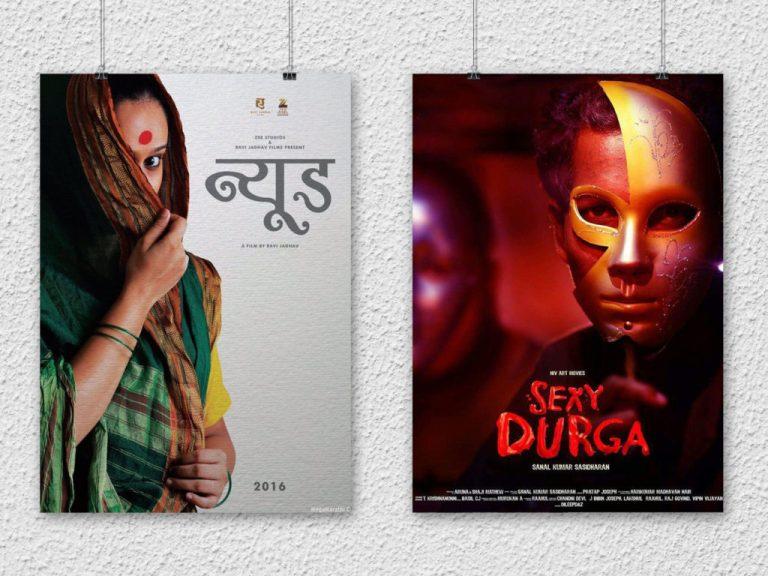
Basu and Banerjee felt that a possible end to such censorship can come only if the Ministry of Information and Broadcasting follow the Shyam Benegal committee recommendations:
We have screened this film earlier at the 'Frames of Freedom film festival' last year in Kolkata. Not just us, several film festivals and independent initiatives have screened this film and several other films (unpalatable to the powers that be) in numerous film screening initiatives.
As it stands, the CBFC better adopt the Shyam Benegal committee recommendations that designate it only as a certification body or risk being continuously reduced to a joke. The CBFC's current rules don't even have emerging technology on their side.
Get the latest reports & analysis with people's perspective on Protests, movements & deep analytical videos, discussions of the current affairs in your Telegram app. Subscribe to NewsClick's Telegram channel & get Real-Time updates on stories, as they get published on our website.
















